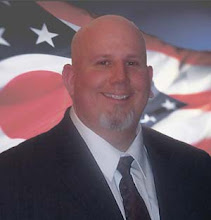Among the chatter I caught this morning while reading through the news feeds by fellow Ohio Libertarians was an item in The Cincinnati Beacon involving Ohio's 1st congressional district candidate Jim Berns and local National Public Radio affiliate station WVXU.
WVXU's Maryanne Zeleznik has coordinated and extensively promoted with advertising a debate to be held between Republican candidate Steve Chabot and Democratic incumbent Steve Driehaus. Conspicuously absent in this process are Berns and Green candidate Rich Stevenson.
Very simply, Berns contends that by not inviting him and Stevenson and then extensively promoting the presence of the major party candidates, WVXU violated the Federal Communication Commission law requiring broadcasters to afford equal air time to all candidates for a specific federal office.
What has been published by the Beacon's online edition is an exact copy of Berns' FCC complaint. Following below that on the Website are three comments on this story: two of which contend Berns has no case. One of those dissenters is a Beacon staffer who concludes, "I wonder why Berns doesn't get that?"
That is when I felt not just compelled but (at the risk of sounding like an ideological zealot) morally obligated to post a counterargument.
Since my two-cents-worth in the comments section is still "awaiting moderation," I have chosen to publish them independent of the paper's online forum.
**********
Donald quoted from the statute:
"No obligation is imposed under this subsection upon any licensee to allow the use of its station by any such candidate."
Your counter argument is based on a misinterpretation of this sentence.
Berns contends that in Section (a) of the law, "If any licensee shall permit any person who is a legally qualified candidate for any public office to use a broadcasting station, he shall afford equal opportunities to all other such candidates for that office in the use of such broadcasting station..."
The clause stipulating "no obligation is imposed" means the broadcast station is not expected to give any candidate air time in the first place.
BUT, once they have allotted any broadcast time to a candidate THEN they are obligated by Title 47, Chapter 5, Subchapter III, Part I, § 315 to afford a reasonably similar length of coverage to the other candidates for that particular office.
Also, when a candidate appears on air under the premise of being a guest of the station, if that does not constitute "use" of the station (under any imaginable context) then I would very much like someone properly explain what the applicable definition(s) would be.
A debate is not an incidental news story (i.e., breaking news report). It is a planned event that is thoroughly coordinated between the respective candidates' campaigns and the host media outlet.
In all reality, Mr. Berns has a very solid argument going in his favor.
Wednesday, September 22, 2010
Subscribe to:
Post Comments (Atom)

No comments:
Post a Comment